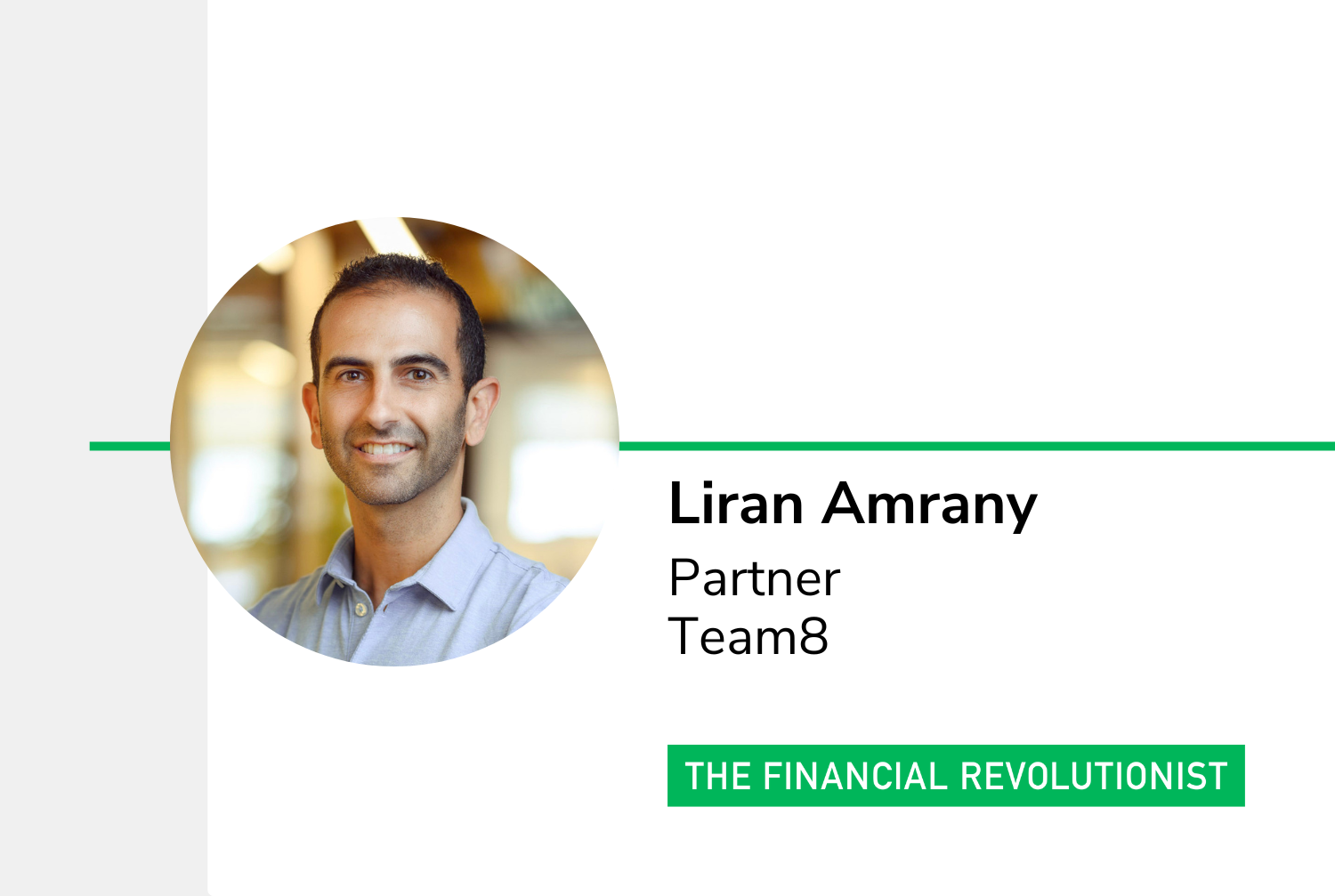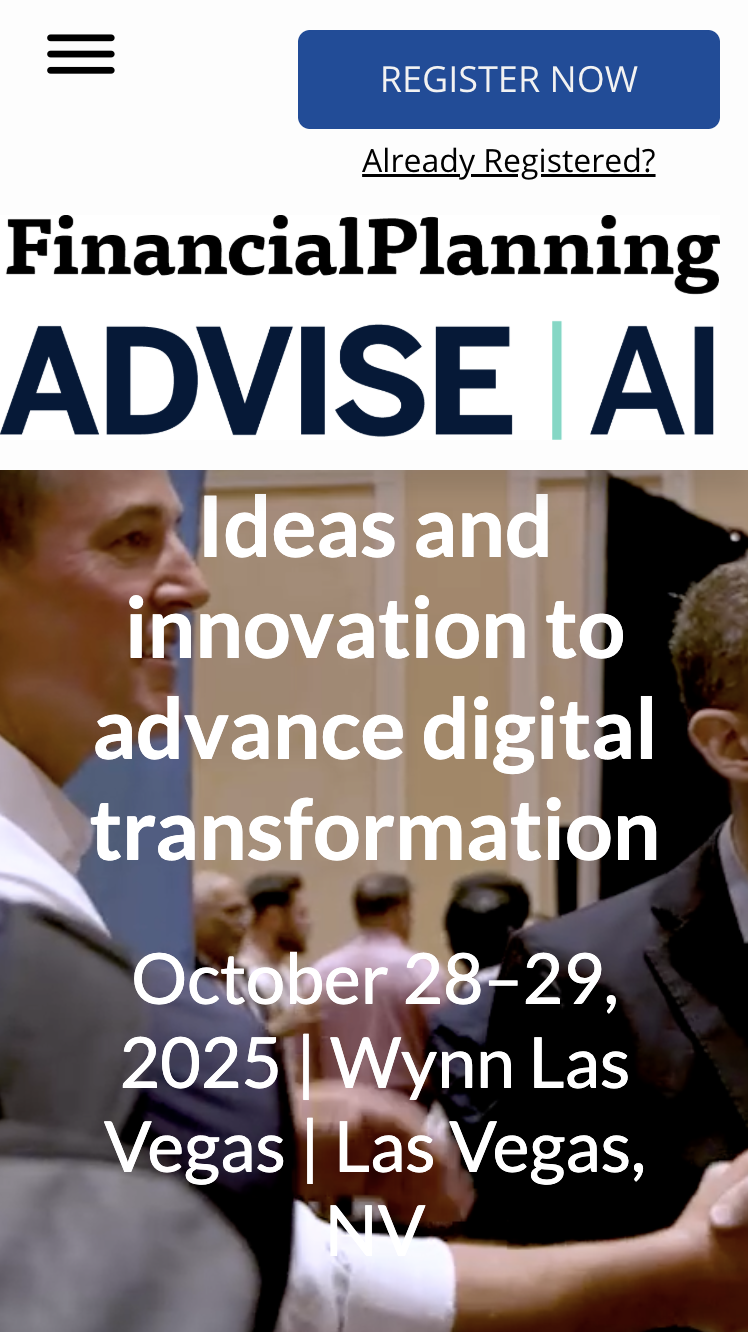Building startups as a VC with Team8
/Liran Amrany is a Partner at Israel-based VC Team 8’s fintech foundry. He advises portfolio companies that are launching new products and services. Amrany, who is based out of Team8's New York office, also has experience founding Debitize, a consumer finance app, and in a leadership role as Executive Director at JP Morgan.
In an interview with The Financial Revolutionist, Amrany describes Team 8’s mission, makes the case for VCs building—rather than just giving money to—promising startups, and outlines the operational steps that make this investment strategy a success.
This interview has been edited for length and clarity.
The Financial Revolutionist: What is Team8's thesis?
Liran Amrany: We’re a global venture group that builds and invests in companies in the fields of cyber, AI, fintech, and digital health. In addition to making early stage investments via our traditional venture arm (Team8 Capital), we’ve doubled down on our unique foundry venture model and we’re highly focused on company building. Our first foundry, founded in 2014, focused on cyber security startups, primarily because Team’s founders hail from Israel’s elite cyber unit, 8200. We launched our fintech foundry—where I work—in 2020, and in the last two-plus years, we’ve built and launched three fintechs from the ground up, with a 4th still in stealth mode.
Broadly speaking, our thesis is that we can significantly increase the probability of success for our startups using a disciplined, repeatable company-building process. Team8’s method involves working closely with industry leaders to source pain points, validate solutions, and line up design partners before we start building. In addition, we’re able to help our founders focus on execution by providing turnkey operational support throughout the earliest stages of their company’s lifecycle. Our history with 8200 and our reputation in Israel—initially as a cyber-focused VC but now also as fintech and health-focused VC, enables us to recruit the best technical talent for our startups as well.
Why build companies rather than just invest in them?
Team8 continues to focus on company building, rather than just investing, because we’ve developed a lot of conviction in our formula, and we have a proven track record of success. We believe our foundry model is the best way for us to make an impact in the industries where we have expertise, and to provide value to our investors.
From a talent and leadership perspective, what makes Team8 uniquely suited to carry out this model?
Part of what attracted me to Team8 is the amazing talent we have here, from top to bottom, including multiple unicorn founders and former industry leaders. On the fintech foundry team, our Managing Partners include Rakefet Russak Aminoach, the former CEO of Israel's largest bank, where she also launched one of the world's first neobanks (Pepper) in 2013, Ronen Assia, Co-founder and Chief Product Officer at eToro, a global crypto and equities social trading platform, and Operating Partner Yuval Tal, the founder of two fintech unicorns (Borderfree and Payoneer). Along with other domain experts on our team, we have the know-how and reach to tackle problems and build successful companies across various areas of fintech, including banking, credit, capital markets, crypto, e-commerce, payments, and more.
What does it take operationally to build these portfolio companies?
To help us build successful companies, we recruit the best founders and we rely heavily on the expertise of our managing partners—unicorn founders, business leaders, and former executives of multinational organizations—as well as a staff of 80 in-house operators who provide hands-on support for everything, from HR, R&D, and marketing, to business development and finance. We also routinely leverage our global network of industry partners who play an integral role in helping our startups identify pain-points and validate ideas. In many cases, members of this network often end up serving as design partners, becoming customers, or even investing in our startups.
On the operational side of company-building, our domain experts and operators lead an extensive ideation track where they identify industry-specific problems and propose solutions, and then conduct an intense validation process with industry partners to test our thesis. Once we have a sufficient level of validation, we recruit entrepreneurs to co-found a company with us, and work closely with them to find product-market fit and accelerate growth.
What successes has Team8's model seen?
Our fintech foundry is still quite new, but we have had some early successes we are proud of. Despite tough market conditions, April, an embedded tax company we launched in early 2022, raised a $30M Series A round in less than 6 months. And our newest company, 40Seas, a cross-border trade financing platform for supply chain businesses, is a great example of how we bring in corporate partners that later become customers and/or investors. In the case of 40Seas, ZIM (the international shipping company) is both. In addition to investing in the 40Seas seed round, and providing a $100m credit facility, their freight forwarding subsidiary Ship4wd is one of 40Seas’ first customers.
But we can also point to our cyber foundry, which has been around a few years longer, as proof that our model works. Of the 13 cyber companies Team8 has launched so far, five have been acquired and two have reached unicorn status. The list of companies with impressive exits includes Curv, acquired by PayPal in 2021, which despite coming from our cyber foundry is also rooted in fintech. In fact, while still in his role at eToro, Ronen Assia from our fintech foundry helped spur the creation of—and became a design partner for—Curv.














